India may well have 22 scheduled languages but the fact remains that English continues to be the number one aspirational language. Scientists at IIITH unveil a tool that may help aspirants in their quest for proficiency in the spoken tongue.
As per experts, the best way to pick up a foreign language is to learn it from a native speaker who can correct you and provide essential feedback. In India, the ‘foreign’ second language is English and represents the key to economic development and employment opportunities. In fact previous studies have shown that despite being highly motivated to learn the language, children in government schools have little or no access to learning resources in English. To overcome this, researchers at the Raj Reddy Centre for Technology and Society (RCTS) in IIITH have developed an English Learning Tool that can be used as a teaching assistant for English speech evaluation.
Automating Speech Assessment
“In a classroom situation, having a teacher correct the nuances of pronunciation by breaking down each sentence and telling the student where to pause, where to lay emphasis on and so on, is a tedious process. In addition to this, often the teachers themselves may not be very proficient in the language,” shares Arjun Rajasekar, Sr. Research Scientist at RCTS. The team at RCTS decided to use a speech assessment model developed by Prof. Chiranjeevi Yarra from the Speech Processing Lab at the Language Technology Research Centre (LTRC) in IIITH. The model was an intelligent assistant that the professor had worked upon previously as part of his research thesis while at IISc under Prof. Prasanta Kumar Ghosh. “The motivation was to help people find gainful employment by helping them learn spoken English and comprehension skills without enrolling at coaching centres,” remarks Prof. Yarra. The entire interface works via voice commands with feedback on pronunciation and sentence formation also given via speech.
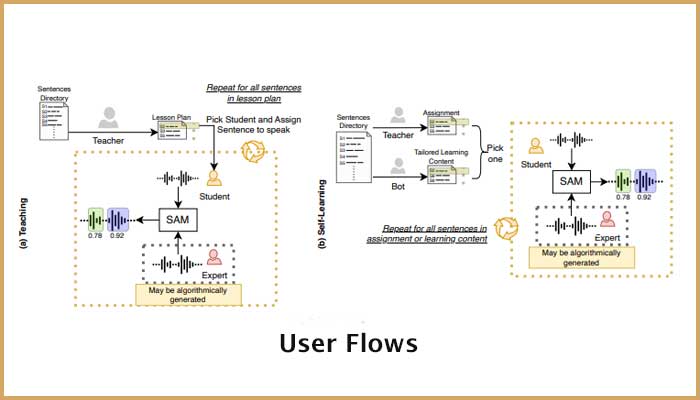
What IIITH Did
The IIITH team built a UI wrapper around the speech assessment model that can be used in either a classroom situation or as a self-paced learning tool. While the original model provides pronunciation feedback at 4 different levels – the phoneme, emphasis, tonal, and possible pause locations of a sentence, the current implementation focuses only on the syllable stress component. Additionally, a visualisation of the feedback was integrated into the tool. What this means according to Arjun is that if a sentence is read out by a student, it is visually mapped against an expert’s enunciation, syllable-wise. “Essentially, it is like ‘you have said this ‘xyz’’, and you get to compare it against how an expert would have said it,” explains Arjun. Each uttered word in the sentence is given a score. In this way, students get clear feedback on where they are going wrong.
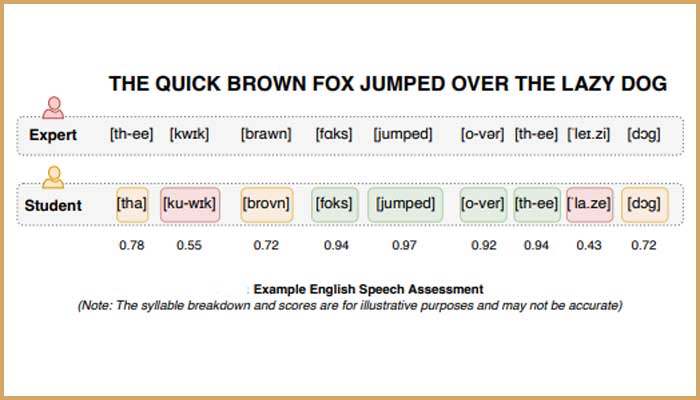
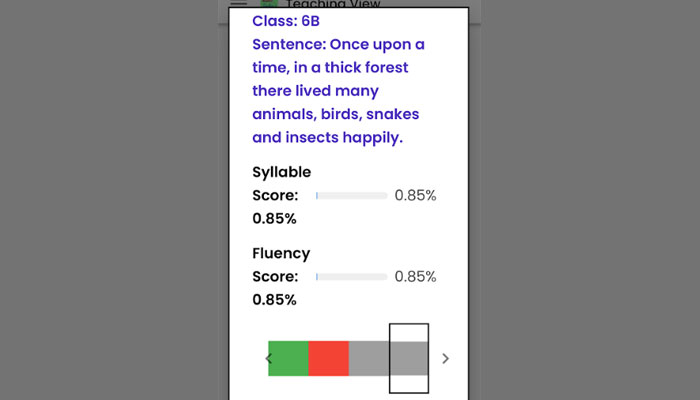
Current and Future Plans
In the classroom setting, the application works as a teacher-assistance tool while in the other case, it is a self-learning tool where the teacher assigns the homework and students can practise at leisure. “Our primary focus is the rural audience where the point is to assist the teacher who might not possess the expertise to teach English or may be taking on more course load than is desirable,” says Arjun. The application had a pilot run in March in one of the government schools in Moinabad village, Rangareddy district where it was excitedly received by the students. In keeping with the ethos of the Raj Reddy Center, the team plans on open sourcing the technology for the application so that it will be publicly available for any learner who wishes to use it.
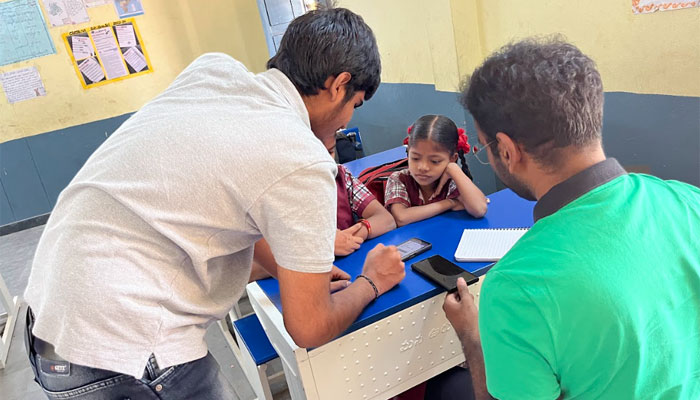
Another use case that is being actively explored is the addition of this technology to the existing pipeline of the AskAgastya project. The way the researchers envision this to work is that when a student is prompted to speak a sentence in English via the AI-driven IVR system, they will receive multi-lingual feedback. “Currently the feedback received is all in English, but via the IVR system, they can opt to receive the feedback in Telugu. It will essentially be like a Telugu speaker teaching you to speak English correctly,” elucidates Arjun.

Sarita Chebbi is a compulsive early riser. Devourer of all news. Kettlebell enthusiast. Nit-picker of the written word especially when it’s not her own.

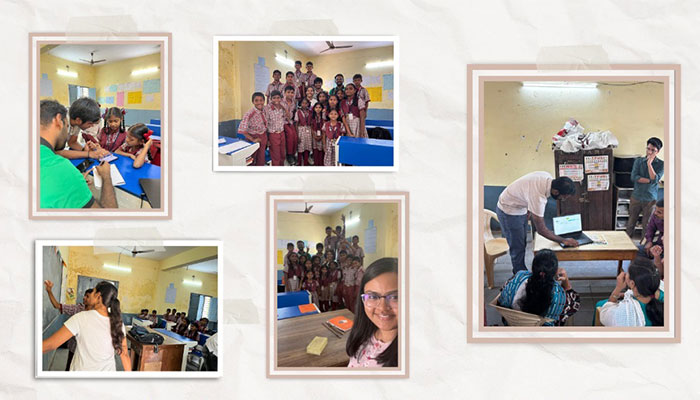
Next post